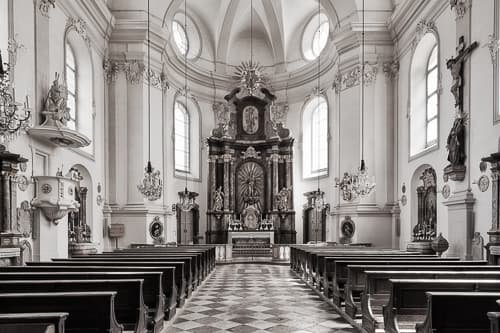It’s More Than Just a Photograph
Feather at Squeaky Beach, Wilsons Promontory, Australia.
Photographs have a life unto themselves. My explorations have determined that our best photos do far more than merely representing the world they depict.
Photographs are more than two dimensional representations of the people, scenes and events you record with your camera. Photos are an act of creation and a repository of memory that explore the relationship between photographer and subject, both that which is depicted and that which is suggested.
This photo of a feather at Squeaky Beach, on the shores of Wilsons Promontory in Australia, illustrates my point. The photo showcases an interesting subject, is underpinned by good composition and elicits an emotive response from the viewer.
This topic might seem out of reach or too academic. But it’s really not, given the approach I’ve taken in creating this post.
The fact is that there can be far more value inherent to a photograph than a straight, documentary record of the subject or scene depicted.
To understand and appreciate the importance of photographs in our lives we need first to explore the following:
The difference between taking and making a photograph
What makes a good photo
The value of photography in our lives
Let’s explore these notions in more depth and, by doing so, better understand and appreciate the photos we make.
The Difference Between Taking And Making A Photograph
I don’t want to take anything from anyone and I’ve long been uncomfortable with the notion of taking a photograph.
For me photography is a creative process and, as such, it should affirm and celebrate life.
While the word take has become very much a part of the photographic vernacular, I wish positive words were more widely used when describing the act of recording a photographic image.
To my way of thinking take is not the only inappropriate word that’s commonly used to describe the in-camera creation of a photograph. Here’s a few more that irritate me.
Capture
Shoot
Conversely, to make or create a photograph suggests an entirely different approach. One that is life affirming and respectful of what you photograph, what your photos are about and the creative process itself.
I think it’s important to state that the way you approach your photography must have an influence on the final outcome of the photos you produce.
If you want to explore in more depth my approach to making photos I’d recommend the following posts.
The Art To Making Photos featuring images from Salzburg, Austria
Why Do You Make Photos? illustrated with images from China, France, India and Australia
Words Related To Photography I Hate featuring images from Iceland, Denmark and India
A good photo combines interesting subject matter, good composition and emotion.
What Makes A Good Photo
I made the above image on a lovely day touring around the coast of Iceland. I stopped the car, just off the side of a narrow, mountainous road to make the photo.
Within a few minutes I’d entered a series of long tunnels which took me through a mountain onto other, very different views on the other side.
The existence of these tunnels was unknown to me and, being the first time I’d entered one, the day as night experience of driving through the dark mountain interior was exhilarating.
As you can see the photo was made from an elevated position. This provided me with an excellent vantage point across the water and over the low-lying clouds to the mountains on the other side of the bay.
Even though I don’t like to use the word take in relation to creating photos, in camera, I accept the fact that most folks have no problem with the use of that word.
With that in mind I’ve written a nice, short post titled How To Take Good Photos. The information in this post has been crafted in an easy to read format that’s highly actionable. Do check it out.
It’s worth noting that successful photographs often elicit strange comments from viewers.
"Is that the way it really looked?" is a common response to an image that has moved far enough away from reality, in the viewers mind, to challenge their own perception.
Here's the thing, it’s a photograph. And a photograph cannot hope to compete with the beauty and awe of nature at its finest.
Many of the attributes associated with a fine art print (e.g., shadow details, expansive mid tones and fully textured highlights) can't be compared to the reality of the natural world.
There’s a completely different set of realities in the world around us. The intense color and heat of molten lava; the exhilaration one feels when breathing crisp Himalayan air, or drinking the clear, sweet waters from a Tasmanian Mountain stream.
Now don’t get me wrong, looking at a well crafted photographic print can be an incredibly powerful experience.
My point is that the two, the natural world and the two dimensional photographic representation of it, are worlds apart and, as such, require a different approach and an equally different form of appreciation.
Rather than competing with it, finely crafted photographs should enhance our experience and understanding of the natural world.
Value of a photo in this candid portrait, Damnoen Saduak Floating Market.
The Value Of Photography In Our Lives
It’s perfectly reasonable for the hobbyist to endeavour to use their camera to create so-called realistic representations of people, important events and journeys.
There’s value in straight photography. It helps us to remember and re-connect with those experiences and how we felt at the time. And of course the photograph is the best way to share those memories with others.
We experience life and then try to use the camera to record the experience.
I think this photo of an elderly woman selling vegetables from her long tail boat at the Saduak Floating Market near Bangkok, Thailand points to the value of photography in our lives.
While I experienced all manner of emotions during my visit to this hectic and crowded tourist location, photos like this will dominate the memories I want to retain in the years to come.
In that regard photography, very much, creates our reality.
While emotions such as joy, pain and love will be part of all our lives, the experience of these emotions (how we decide to respond to stimuli received via our sense organs) is a uniquely individual experience.
Many artists, however, are not compelled to record reality as such. For them it’s more about their own, personal experience of that reality and how they choose to represent it.
Just as the wet darkroom did in years past, the digital darkroom allows the photographic artist the opportunity to take the original data recorded and adapt it to meet their current vision or needs.
So, next time you're asked if that was really how it looked when you made the photo, here's a couple of replies worth considering.
Sure, absolutely (of course that's probably a lie and not the answer I would choose to provide)
No, its not so much about what I saw, but how I felt about what what I saw
No, but it’s how I've decided to represent it in this particular version of the photo
Whatever way you decide to handle such potentially tricky moments it’s good to remember, in a world overloaded with imagery, the fact that someone actually stopped to think and ask you a question about one of your photos.
I’d consider that a win and another example of the value of photography in our lives.
It’s important not to be offended or feel challenged when asked such questions about the photos you create. Needless to say your reply should, in no way, appear elitist.
One of the most popular posts I’ve created is titled Subject and Meaning in Photography. It speaks very much to the philosophy that underpins my own approach to photography.
It’s a substantial piece, illustrated with lots of great travel photos, and I’m sure you’ll find it helpful in your own creative journey through the art of photography.
Good Photos: The Way Forward
We are all drawn to photograph what's in front of us. We usually do so because the subject or scene in question moves us emotively.
However, because our own response to what we see is unique and unlike that of anyone else, it’s not unreasonable that our photographs should also be different.
To be able to document your own, individual response to the world around you is surely something worth celebrating.
Photography has provided me with many powerful and meaning rich experiences. I hope you get to enjoy lots of wonderful photography adventures and that the creative process will help bring purpose and meaning into your own life.







